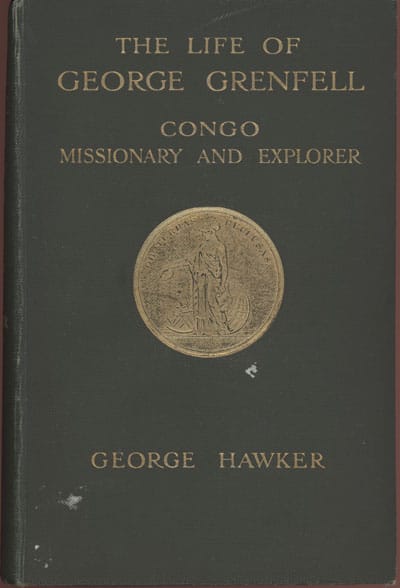Book Description
Jim Elliot was part of a team of young missionaries murdered in Ecuador in 1956 by the Auca Indians to whom they were witnessing. At the age of 29, he left behind a young widow, a baby daughter, and volumes of personal journals written over many years. In 1978, Revell published the complete and unabridged journals, edited by his widow, Elisabeth, and the journals have stayed in print ever since. And it’s no wonder Jim Elliot was an intelligent thinker and strong writer in these personal, yet universal, musings about faith, work, and love. The Journals of Jim Elliot is a wonderful account of the life of a man who yearns to know God’s plan for his life, details his fascinating missions work, and loves Elisabeth first as a single man, then as a happily married one. The Journals of Jim Elliot will intrigue fans of Jim and Elisabeth Elliot, readers interested in missions, and young people struggling to find God’s plan for their lives.
About the Author
George Grenville, (born October 14, 1712—died November 13, 1770, London, England), English politician whose policy of taxing the American colonies, initiated by his Sugar Act of 1764 and the Stamp Act of 1765, started the train of events leading to the American Revolution.
He entered Parliament in 1741, one of the “cousinhood” of men interrelated by blood or marriage and further united in their opposition to Sir Robert Walpole, who held power from 1721 to 1742 and practiced a policy of salutary neglect toward the American colonies. After holding a number of ministerial appointments, Grenville was recommended to George III by Lord Bute to be his successor as first lord of the Treasury (prime minister).
Grenville’s ministry (1763–65) was unhappy and disastrous, largely because of his lack of finesse, eloquence, and imagination and his determination to control all crown patronage. His relationship with the king suffered from George III’s habit of continual consultation with Bute. Apart from American taxation, other notable incidents during the Grenville administration included the prosecution of John Wilkes for seditious libel and the clumsy handling of the Regency Act of 1765 that had been introduced as a result of a severe illness the king had suffered. This bumbling finally alienated the king and led to the fall of the ministry.
In opposition after 1765, Grenville castigated politicians opposed to American taxation and helped to bring about the passage of the Townshend Acts of 1767, which renewed tension between Britain and the colonies.


